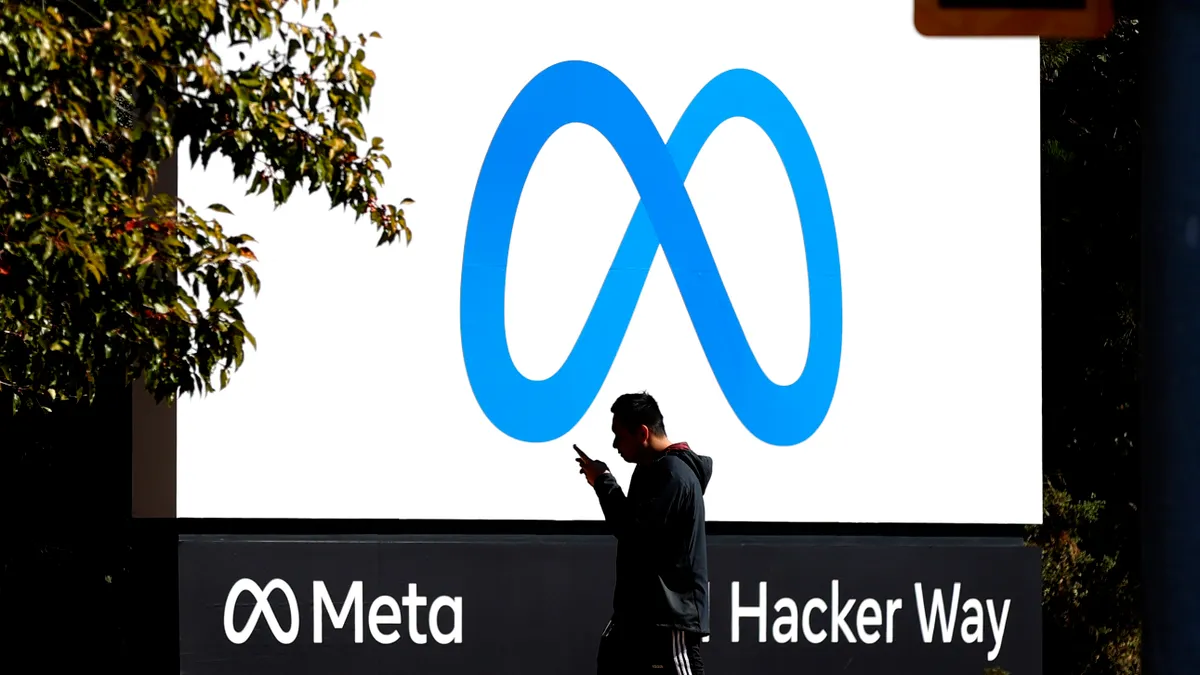Dive Brief:
- Meta has committed to contract at least $35 million for carbon removal projects in the next year, an investment the tech giant said is a “direct response” to the carbon removal purchase program the Department of Energy launched in March.
- The funding, announced Friday, matches the DOE’s own pilot effort to purchase $35 million in carbon removal credits, and builds on the Voluntary Carbon Dioxide Removal Purchasing Challenge it launched earlier this year. The program invites organizations working on curbing their carbon footprint to help scale the voluntary carbon market by making “bigger and bolder purchase commitments.”
- Meta said tapping into the carbon removal market will help the tech giant reach its sustainability targets, which include a goal to reach net-zero emissions across its supply chain by 2030.
Dive Insight:
Meta became the second company to participate in the DOE program, after Google became the inaugural contributor to DOE’s carbon removal initiative and agreed to match DOE’s own $35 million contracting pledge. The search engine platform and computer software company unveiled its funding commitment on March 14, the same day the DOE announced the program.
At the time, Google’s carbon credits and removals lead Randy Spock said the DOE’s program marked the first time the federal government ventured into the voluntary carbon purchase marketplace by procuring carbon removal credits, which paved the way for Google to make a similar commitment for the private sector.
Meta said reducing its greenhouse gas emissions across its global operations and supply chain “remains the most effective strategy” to achieve its net-zero target, per the Oct. 11 release.
The social media and tech conglomerate previously said it would also back carbon removal projects that rely on nature-based solutions or emerging technologies for emissions from hard-to-abate sectors, according to its latest net-zero progress report released last year. In the same report, the company said it achieved net-zero status across its own global operations in 2020 — a feat it attained by reducing emissions by 94%, compared to a 2017 baseline.
Earlier this year, Meta teamed up with Google, Microsoft and Salesforce to launch the Symbiosis Coalition — an advanced market commitment to contract up to 20 million tons of nature-based carbon removal credits by 2030. The coalition identifies and invests in carbon removal projects that focus on nature restoration. The four tech companies, who also serve as the founding members, said though they are focused on slashing their own carbon footprint, they also “recognize the necessary role of a high integrity carbon market” and nature-based projects that help address climate risk.
Carbon dioxide removal will likely require $6 trillion to $16 trillion of “cumulative investment” to deliver net-zero emissions by 2050, according to a recent report by McKinsey & Company. The research also found that there is a $400 billion to $1.6 trillion gap between current estimated investment and what would be needed by 2030 to put carbon removal on track to meet mid-century net-zero targets.
“Carbon removal will not only play an important role in helping us reach net zero emissions across our value chain in 2030, but it will also help the world avoid the worst effects of climate change,” Meta said in the Oct. 11 release. “We hope our pledge will encourage others to make similar pledges, ultimately helping to scale the market and reduce the cost of carbon removal technologies.”











